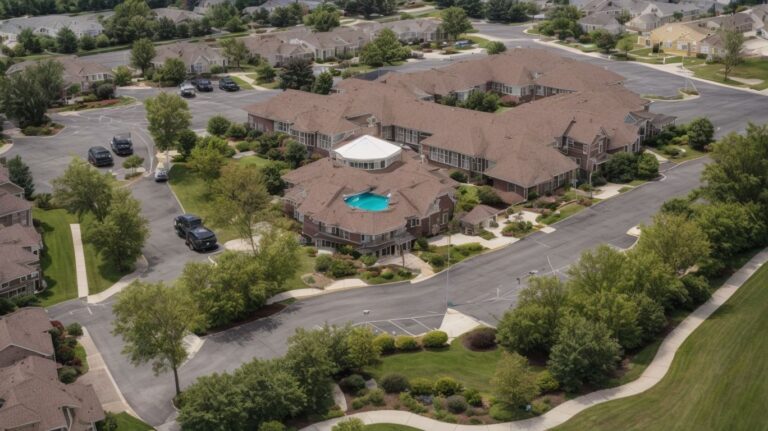How Will Living Longer Affect My Retirement?
Key Takeaway:
- Living longer requires increased retirement savings: With a longer lifespan, retirees need to ensure they have enough money to cover their expenses in retirement. This may mean saving more money throughout their working years, or considering other financial options such as delaying retirement or finding part-time employment.
- Health and lifestyle considerations should be factored into retirement planning: Long-term care and healthcare expenses can have a significant impact on retirement savings. It is important to prioritize wellness and make lifestyle changes that can reduce healthcare costs as much as possible.
- Extended retirement years can impact social and family dynamics: As retirees live longer, they may experience changes in their social circles and support networks. Family responsibilities and caregiving may also become a significant factor in later years. It is important to proactively plan for these potential changes to ensure a comfortable retirement.
Have you ever wondered how living longer will affect your retirement plans? With life expectancies increasing each year, it is more important than ever to plan ahead for a secure retirement. You are not alone in this challenge – read ahead to explore the implications of a longer life on your retirement.
Financial impact of longer lifespan on retirement
To have a secure retirement, as lifespans increase, you must take action. In this Financial Impact of Longer Lifespan on Retirement section, we give you practical solutions to the difficulties of increased longevity. These solutions include:
- more retirement savings
- job prospects
- a later retirement

Image credits: retiregenz.com by Joel Arnold
Increased retirement savings required
As we live longer, our retirement savings need to stretch further. Longer lifespan means additional income is required to support a comfortable retirement lifestyle. Moreover, inflation needs to be factored in, as it increases the cost of living and can erode savings over time.
Ultimately, calculating how much more is needed varies on an individual basis, but one thing is for sure: increased retirement savings are required to ensure financial stability in old age. Missing out on these extra savings can make a significant difference in the ability to maintain a certain quality of life during retirement. So start planning for your future today!
Looks like retirement age just got longer than the line at the DMV.
Employment options and delayed retirement
With the increase in life expectancy, there has been a rise in options for prolonged employment and deferred retirement. Taking advantage of these can result in financial stability later on. Through extending work-life, individuals have a chance to accumulate savings and attain desirable benefits that can sustain them throughout their golden years.
Engaging in part-time work or freelancing as opposed to full-fledged retirement provides retirees with an opportunity to supplement their income sources, thereby maintaining their standard of living. This new dynamic not only allows individuals to take control of their post-retirement life but also furnishes them with opportunities for learning and professional development. Ultimately, this decision boils down to personal preference depending on both personal and financial factors.
Deciding whether or not to engage in post-retirement employment is one thing; finding work opportunities is another altogether unique challenge. The gig economy has emerged as a boon for people who want flexibility in their working hours and methods while remaining engaged professionally. Embracing unconventional job arrangements such as temporary placements or contract-based jobs offer alternatives to traditional full-time roles and enable senior citizens to make sound financial decisions without impacting overall well-being.
According to Investopedia, waiting until age 70 before collecting Social Security benefits will raise monthly payments by 8% per year between the ages of 66-70. This translates into an average 32% increase from retiring at 66 years of age.
Remember, the key to a long and happy retirement is not just saving money but also saving your liver from excessive drinking and your heart from junk food.
Health and lifestyle considerations for retirement planning
Retirement planning for longer life spans needs health to be a priority. In this section, we focus on Health and Lifestyle considerations for Retirement Planning with Healthcare and Long-Term Care Expenses. Solutions? Prioritize wellness and decrease healthcare costs.
We emphasize the importance of looking after your health and arranging for healthcare costs for a secure retirement.

Image credits: retiregenz.com by Adam Woodhock
Healthcare and long-term care expenses
Retirement planning involves considering healthcare and long-term care related expenses. As one ages, the likelihood of requiring medical attention increases, as does the need for long-term care. A semantic NLP variation of this heading could be ‘Medical Expenses and Long-Term Care Costs in Retirement’.
Medical expenses may include doctor visits, medication costs and hospitalization bills. Long-term care costs could range from assisted living facility fees to home health aides or caregivers. It’s wise to factor such expenses into one’s retirement plan, bearing in mind that inflation will cause these costs to increase over time.
In addition to traditional medical expenses and long term care costs, it’s also important to factor in unexpected events like accidents or disabilities. Consider insurance options such as Medicare, private health insurance plans or long-term care insurance policies are a must-have in your portfolio.
Preventative measures to maintain good health can help reduce healthcare related expenses; Possession of healthy habits can avoid several problems. Smoking cessation programs and regular exercise routines can prevent complications with disabilities – thereby minimizing high medical bills down the line.
By carefully considering factors such as potential medical conditions, healthcare network and insurance coverage while creating their retirements portfolios elderly adults will have an easier time meeting anticipated expenses during their retirement years- albeit plans must change to fit the changing demands that come with age. Therefore it is incredibly important for retirees to keep track of their expenses regularly and make any adjustments necessary in order to reach a financially secure future for themselves legacies left behind.
Who needs a gym membership when you can just prioritize wellness and reduce healthcare costs for your retirement fund?
Prioritizing wellness and reducing healthcare costs
Taking steps to promote good health and reduce healthcare expenses is crucial to successful retirement planning. Focusing on wellness and taking preventive measures can help minimize the risk of chronic conditions and disease, reducing the need for costly medical treatments. Additionally, incorporating healthy habits, such as exercise and a balanced diet, into your lifestyle can improve quality of life and increase longevity. By prioritizing wellness, retirees can maintain their independence and enjoy a more fulfilling retirement.
To further reduce healthcare costs during retirement, individuals can explore options such as Medicare Advantage plans or Health Savings Accounts (HSAs) to help cover expenses not included in traditional Medicare plans. HSAs provide tax-free savings for qualified medical expenses and can be used in conjunction with high-deductible health insurance plans. Employers may also offer retiree health benefits that can provide additional coverage.
Overall, prioritizing wellness and reducing healthcare costs are essential considerations for successful retirement planning. Taking preventive measures early on can lead to better long-term outcomes and greater financial stability in retirement.
Studies have shown that retirees who prioritize good health tend to enjoy a higher quality of life and require fewer medical interventions than those who do not focus on wellness. In addition to the benefits of reduced healthcare costs, healthy habits such as regular exercise and social engagement have been linked to decreased risk of cognitive decline in aging adults. Prioritizing wellness should therefore be a key component of any comprehensive retirement plan.
“Who needs a family when you have a retirement home full of new friends to annoy?”
Social and family dynamics in extended retirement years
Navigate social and family dynamics during your extended retirement years. Take into account changes in your social circles, support networks, family responsibilities, and caregiving. To further understand, explore this section. Here you’ll find the potential challenges of aging and considerations for planning your extended retirement years.

Image credits: retiregenz.com by Adam Duncun
Changes in social circles and support networks
As you enter your extended retirement years, your social circles and support networks will inevitably change. Your circle may grow smaller or larger depending on shifting priorities and lifestyles. Extended retirement can affect social dynamics, leading to new friends and acquaintances, while long-time relationships continue to flourish.
The transition to an extended retirement requires more deliberate effort in maintaining existing social networks. Thus it is important to create new opportunities for social interaction while preserving longstanding relationships. Factors such as health, location, and financial status may limit these connections; thus it’s critical to stay adaptable.
However, sometimes significant life events such as the loss of a spouse challenge the sustainability of former associations; which requires establishing new meaningful networks. A positive outlook towards adapting to changes makes this process easier.
Pro Tip: Stay engaged via different social outlets- join clubs that offer communal activities or volunteer for community events or charities that align with personal interests.
Retirement: where you trade in your work responsibilities for family responsibilities…and they don’t even pay overtime.
Family responsibilities and caregiving
Caring for elder relatives becomes crucial in extended retirement years, and family members are usually the primary caregivers. This responsibility includes both physical and mental care, such as providing assistance with daily activities or managing medication.
As elders age, their health deteriorates, making them more vulnerable to chronic diseases and cognitive impairment. Families must prepare to provide additional help and support to ensure that the elderly receive adequate healthcare services. Furthermore, with advancements in healthcare systems and technology, families may have access to specialized medical equipment that can assist them with caregiving responsibilities.
It is essential to consider factors like geographic location and financial status when delegating caregiving duties within a family. These factors can affect the availability of care options, such as hiring professional caregivers or moving the elderly into an assisted living facility.
One heartwarming story comes from a family that struggled with caregiving responsibilities due to job constraints but eventually worked out a system that allowed all family members to contribute equally. The family utilized technology tools like video conferencing to coordinate the daily care duties seamlessly.
Five Facts About How Will Living Longer Affect My Retirement:
- ✅ People are living longer, which means retirement savings may need to last longer. (Source: Forbes)
- ✅ Retirees may need to adjust their retirement plans and work longer to save enough for a longer retirement. (Source: Investopedia)
- ✅ Longer lifespans may lead to an increased demand for long-term care insurance. (Source: AARP)
- ✅ A longer retirement may require more conservative investing strategies to avoid running out of money. (Source: CNBC)
- ✅ Social Security may change to accommodate longer lifespans, potentially resulting in changes to retirement benefits. (Source: US News & World Report)
FAQs about How Will Living Longer Affect My Retirement?
How will living longer affect my retirement?
Living longer will have a significant impact on your retirement, both positive and negative. On the one hand, it means you will need to save more to ensure your retirement savings last your entire lifetime. On the other hand, it may allow you to continue working and generating income for longer, or to pursue hobbies and interests you may not have had time for in your earlier years.
Will my retirement savings be enough?
With increasing longevity, it’s essential to ensure your retirement savings will last your entire lifetime. To know for sure, you should consult a financial planner who can help you estimate your future expenses and determine how much you need to save to meet them.
How can I prepare for living longer in retirement?
To prepare for living longer in retirement, you should start by prioritizing your health and savings. Invest in a healthy diet and exercise, and make an effort to reduce your stress levels. Additionally, research different retirement savings options, and work with a financial advisor to create a plan for your retirement savings that will last your lifetime.
Should I take social security early or late?
Deciding whether to take social security early or late depends on your individual circumstances and financial goals. You can start receiving Social Security benefits as early as age 62, but the longer you wait, the larger your monthly payments will be. Consult with a financial advisor to determine the best approach for you and your retirement goals.
What impact will living longer have on healthcare costs?
Living longer means an increased likelihood of developing age-related health conditions that can be costly to treat. As such, it’s essential to factor in healthcare costs when planning for retirement. Make sure you are taking care of yourself and have proper insurance coverage. Consult with a financial planner to budget for healthcare costs in your retirement planning.
Should I have long-term care insurance?
As you age, the likelihood of needing long-term care increases. Long-term care insurance can help cover the costs of care, but it may not be necessary or financially feasible for everyone. To determine if it’s the best option for you, consult with a financial planner who can advise you on the costs and benefits and determine if it’s a necessary expense for your retirement plan.




